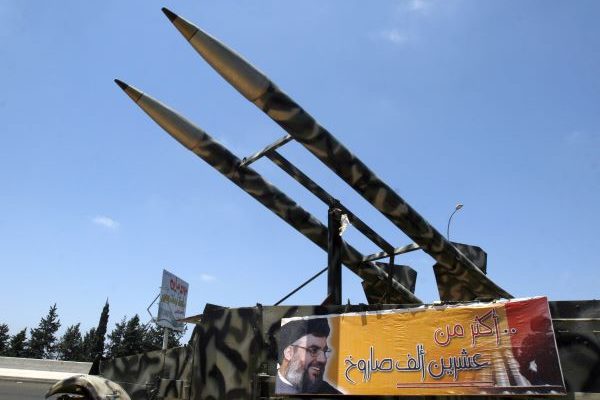The attack came after the killing of Hamas terror chief Saleh al-Arouri in Lebanon last week.
By Vered Weiss, World Israel News
On Saturday, Hezbollah fired 40 rockets that set off alerts in 90 Israeli communities.
According to a Hezbollah statement, the attack was a response to the killing of Hamas terror chief Saleh al-Arouri in Lebanon last week.
Although Hezbollah boasted of significant Israeli casualties and injuries, there were no reports of people killed or wounded in the attacks.
Many of the missiles were aimed at Mount Meron, which houses a military radar station in northern Israel.
In a statement Hezbollah justified the attack as “part of the initial response to the crime of assassinating the great leader Sheikh Saleh al-Arouri.”
Although alerts were set off in 90 communities, only Mount Meron was targeted during the initial round of missiles on Saturday.
An hour later, another round was also directed at the Metula and Margaliot areas on the border.
On Saturday afternoon, Hezbollah rockets were aimed at Yiftah and Avivim with no reported injuries.
In response, the IDF hit a terror cell in Lebanon where many of the rockets were launched.
The IDF reported striking targets in Ayta ash-Shab, Yaroun, and Ramyah which included missile launch areas, military centers, and terrorist infrastructure.
מטוסי קרב של חיל-האוויר וכוחות צה"ל נוספים תקפו מוקדם יותר היום שורת מטרות של ארגון הטרור חיזבאללה במרחבים עייתא א-שעב, ירון ורמיה בדרום לבנון.
בין המטרות שהותקפו: עמדת שיגור, מבנים צבאיים ותשתיות טרור. pic.twitter.com/v4sY4MA6p2— Israeli Air Force (@IAFsite) January 6, 2024
In a second strike, the IAF hit two significant Hezbollah compounds housing the terror group’s air defense unit, terror cells, rocket launch areas, and a command center.
During the fighting, Hezbollah launched a surface-to-air missile at an Israeli military drone over Lebanon, but it failed to hit it.
מטוסי קרב של חיל-האוויר תקפו לפני זמן קצר שני מתחמים צבאיים של ארגון הטרור חיזבאללה. המתחמים היוו נכסים משמעותיים עבור הארגון, ביניהם מתחם צבאי בשימוש יחידת טילי קרקע אוויר של ארגון הטרור חיזבאללה. pic.twitter.com/50msakpnEW
— Israeli Air Force (@IAFsite) January 6, 2024
The Hezbollah attack was one of the largest since the terror group began firing missiles into northern Israeli communities following the October 7th massacre.
Last week, Hezbollah leader Hassan Nasrallah threatened that residents in the north of Israel “would be the first to pay the price if a full-scale war were to erupt”
Since the beginning of the war, 28 communities in the north of Israel have been evacuated.
To prevent the escalation of fighting between Iran-backed Hezbollah and Israel, Biden Administration special envoy Amos Hochstein arrived in Israel last week.
On Wednesday, Hochstein met with Lebanese Foreign Minister Abdallah Bou Habib and said the US has “a diplomatic effort underway to help resolve some of the tension” without providing further details.
A senior Biden Administration official told the US press on Wednesday that Lebanon doesn’t want war with Israel.
“I think from everything that we can tell, there is no clear desire from Hezbollah to go to war with Israel, and vice versa,” he said.
Israeli political and military leaders insist that to ensure the security of residents in northern towns, Hezbollah must withdraw from the border to north of the Litani River, as required by 2006’s UN Resolution 1701.
A refusal to comply with this requirement will result in continued military action against Hezbollah, according to Israeli officials.




